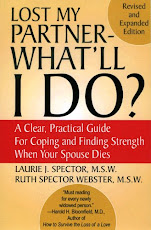
In honor of Halloween, we look back at the challenges of being widowed during the 1690’s witch trials in Salem, MA.
According to an excerpt from a paper by Mark Price about accused witch Margaret Scott:
“Another factor about Margaret Scott's character that made her vulnerable to accusations was her status as a widow for twenty-one years. Being a widow did not in itself expose a woman to suspicion.
However, Scott suffered from the economic and social effects of being a widow for a prolonged period. The most dangerous aspect of being a widow was the lack of a husband for legal support and influence.
Also, Scott, 56 at the time of her husband's death, was forced to live off her husband's small estate for twenty-one years. Often widows who were over fifty and not wealthy, were unable to find a new spouse and thus were reduced to poverty and begging. By begging, Margaret would expose herself to witchcraft suspicions according to what historian Robin Briggs calls the 'refusal guilt syndrome'. This phenomenon occurred when a beggar's needs were refused causing feelings of guilt and aggression on the refuser's part. The refuser projected this aggression on the beggar and grew suspicious of her.”
Broomsticks, anyone?
Happy Halloween!


No comments:
Post a Comment